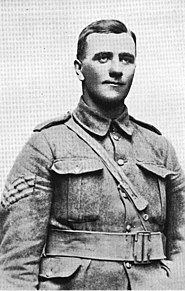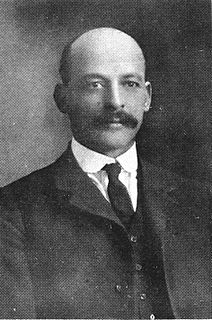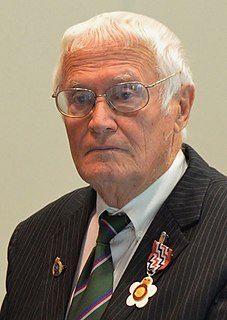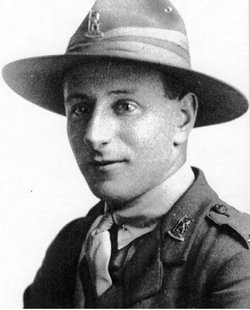 W
WBill Henry "Willie" Apiata, VC is a former corporal in the New Zealand Special Air Service, who became the first recipient of the Victoria Cross for New Zealand. He received the award on 2 July 2007 for bravery under fire during the War in Afghanistan in 2004, in which he carried a gravely wounded comrade across a battlefield, under fire, to safety.
 W
WBrigadier General Charles Henry Jeffries Brown DSO was a New Zealand Military Forces officer who served in the First World War, firstly in the Gallipoli Campaign and then on the Western Front. He was commander of the 1st Infantry Brigade from February 1917 until he was killed by artillery fire on 8 June 1917, one of three New Zealand brigadier generals who died during the war.
 W
WDonald Forrester Brown, VC was a New Zealand recipient of the Victoria Cross (VC), the highest award for valour "in the face of the enemy" that can be awarded to British and Commonwealth forces.
 W
WElijah John "Jack" Carey was a New Zealand waiter, trade unionist and soldier.
 W
WAir Marshal Sir Arthur "Mary" Coningham, was a senior officer in the Royal Air Force. During the First World War, he was at Gallipoli with the New Zealand Expeditionary Force, was discharged in New Zealand as medically unfit for active service, and journeyed to Britain at his own expense to join the Royal Flying Corps, where he became a flying ace. Coningham was later a senior Royal Air Force commander during the Second World War, as Air Officer Commanding-in-Chief 2nd Tactical Air Force and subsequently the Air Officer Commanding-in-Chief Flying Training Command.
 W
WHerbert "Bert" Errol Cook was a New Zealand rugby union and professional rugby league footballer who played in the 1940s and 1950s, and coached rugby league in the 1950s. He played representative level rugby union (RU) for 2nd New Zealand Expeditionary Force "Kiwis", and representative level rugby league (RL) for Other Nationalities, and at club level for Leeds, Keighley and Dewsbury, as a goal-kicking fullback, i.e. number 1, and coached club level rugby league (RL) for Keighley and Dewsbury.
 W
WJames Crichton, VC was an Irish-born soldier and a recipient of the Victoria Cross (VC), the highest award for gallantry in the face of the enemy that could be awarded at that time to British and Commonwealth forces.
 W
WRhys Montague Darby is a New Zealand actor, comedian and voice actor known for his energetic physical comedy routines, telling stories accompanied with mime and sound effects of things such as machinery and animals. He was nominated for the Billy T Award in 2001 and 2002. He also won the 2012 Fred (Dagg) award at the New Zealand International Comedy Festival, for best NZ show.
 W
WVance Drummond, was a New Zealand–born Australian pilot who fought in the Korean and Vietnam Wars. He initially saw service in the New Zealand military, but joined the Royal Australian Air Force in 1949 and graduated as a sergeant pilot in 1951. Posted to No. 77 Squadron in Korea, he flew Gloster Meteor jet fighters and earned the US Air Medal for his combat skills. He was shot down by a Mikoyan-Gurevich MiG-15 in December 1951 and imprisoned for almost two years. After returning to Australia he converted to CAC Sabre jets and in December 1961 became a flight commander with No. 75 Squadron; he subsequently led the squadron's Black Diamonds aerobatic team, and was awarded the Air Force Cross in 1965.
 W
WSamuel Forsyth, VC was a New Zealand recipient of the Victoria Cross (VC), the highest award for gallantry in the face of the enemy that could be awarded at the time to British and Commonwealth forces.
 W
WBrigadier General Harry Townsend Fulton, was a British Army officer who served with the New Zealand Military Forces during the Second Boer War and First World War.
 W
WAlbert Victor Grayson was an English socialist politician of the early 20th century, belonging to the Independent Labour Party (ILP). A Member of Parliament (MP) from 1907 to 1910, he is most notable for his sensational by-election victory at Colne Valley in 1907, and for his unexplained disappearance in 1920.
 W
WElizabeth Catherine Gunn was a New Zealand school and army doctor and public health official. She was a pioneer in the field of children's health, and was instrumental in the establishment of children's health camps in New Zealand.
 W
WSir John Richard Harrison was a New Zealand politician. After serving in a number of capacities in the National Party, he served as Speaker of the House of Representatives from 1978 to 1984.
 W
WBrigadier General Sir Herbert Ernest Hart, was an officer in the New Zealand Military Forces who served during the Second Boer War and the First World War. He later served as the Administrator of Western Samoa and worked for the Imperial War Graves Commission.
 W
WMajor Norman Frederick Hastings, DSO served as Officer Commanding New Zealand's 6th (Manawatu) Squadron, Wellington Mounted Rifles Regiment. After serving with British military units during the Second Anglo-Boer War in South Africa, he worked as an engineering fitter with the New Zealand Railways Department workshops at Petone. He enlisted in the New Zealand Expeditionary Force at the outbreak of World War I, and served with distinction before dying of wounds after the attack on Chunuk Bair, Gallipoli, in August 1915. He was awarded the Distinguished Service Order, was Mentioned in Despatches, and was one of only 14 members of the New Zealand Army to receive the French Legion of Honour decoration during the war. The memorial flagstaff at Petone railway station appears to have been erected in his honour, and was the site of New Zealand's first public Anzac Day ceremony on 25 April 1916.
 W
WMaurice Heenan was a New Zealand-born barrister and solicitor, who served as Attorney General of Hong Kong and as a senior lawyer for the United Nations.
 W
WStanley Frank "Tiny" Hill was a New Zealand international rugby union player and selector. A lock and flanker, Hill represented Canterbury and Counties at a provincial level, and was a member of the New Zealand national side, the All Blacks, from 1955 to 1959. He played 19 matches for the All Blacks, two of which were as captain, including 11 internationals. After retiring as a player, Hill served as New Zealand Army and Canterbury selector, and as an All Black selector from 1981 to 1986.
 W
WKenneth Heta Hingston was a New Zealand lawyer and jurist. He served as a judge of the Māori Land Court from 1984 to 1999, and as Chief Justice of Niue until 2010.
 W
WJohn Daniel "Jack" Hinton, VC was a New Zealand soldier who served during the Second World War. He was awarded the Victoria Cross, the highest award for gallantry "in the face of the enemy" that can be awarded to British and Commonwealth forces, for his actions at Kalamata on 29 April 1941 during the Battle of Greece.
 W
WMurray Ken Hudson, was a Sergeant with the Royal New Zealand Infantry Regiment who lost his life when trying to protect soldiers under his command at Waiouru Military Camp in New Zealand. He was awarded the George Cross posthumously on 11 October 1974.
 W
WAlfred Clive Hulme VC was a soldier in the New Zealand Military Forces and a recipient of the Victoria Cross (VC), the highest award of the British Commonwealth, for gallantry "in the face of the enemy". He received the VC for his actions during the Battle of Crete in May 1941. He was also the father of champion Formula One racing driver Denny Hulme.
 W
WBrigadier General Francis Earl Johnston, was a New Zealand-born British Army officer of the First World War, who served in the New Zealand Expeditionary Force (NZEF) at Gallipoli and on the Western Front.
 W
WReginald Stanley Judson, was a New Zealand recipient of the Victoria Cross (VC), the highest military award for gallantry "in the face of the enemy" given to British and Commonwealth forces. He was awarded the VC for his actions in the Second Battle of Bapaume during the First World War.
 W
WHarry John Laurent, VC was a New Zealand recipient of the Victoria Cross (VC), the highest award for gallantry in the face of the enemy that can be awarded to British and Commonwealth forces.
 W
WRon Stanley Mark is a New Zealand politician of the New Zealand First party, and former soldier, who since October 2017 has served as Minister of Defence. He served as mayor of Carterton from 2010 to 2014.
 W
WHenry James Nicholas, was a New Zealand recipient of the Victoria Cross, the highest award for valour "in the face of the enemy" that can be awarded to British and Commonwealth forces.
 W
WTiaki Omana, also known by the English name Jack Ormond, was a New Zealand rugby union player and politician. He won the Rātana Movement's fourth Maori electorate of Eastern Maori in 1943 from Āpirana Ngata who had held it since 1905.
 W
WAir Chief Marshal Sir Keith Rodney Park, was a New Zealand soldier, First World War flying ace and Second World War Royal Air Force commander. He was in operational command during two of the most significant air battles in the European theatre in the Second World War, helping to win the Battle of Britain and the Battle of Malta. In Germany, he was supposedly known as "the Defender of London".
 W
WLyn Philp was a New Zealand professional boxer, and New Zealand's Bantamweight Champion from 1947 - 1954.Ranked fourth best bantamweight New Zealand all-time greats.
 W
WHaami Tokouru (Toko) Ratana was a New Zealand politician and President of the Ratana Church. He joined Eruera Tirikatene in Parliament as the second Ratana Independent Member of Parliament (MP), elected for the Western Maori electorate in 1935. Following the death of his father Tahupotiki Wiremu Ratana in 1939, H.T Ratana became the second Ratana movement President. He held both positions until his death in 1944.
 W
WDavid Russell was a Lance Corporal with the 22nd (Motor) Battalion, New Zealand Infantry, 2nd NZEF, who was awarded the George Cross posthumously after being executed by German forces in Italy.
 W
WCharles Savory was a New Zealand international rugby league footballer and champion boxer who died in the First World War. An Australasian and New Zealand international representative forward, Savory was one of four Kiwis players selected to go on the 1911–12 Kangaroo tour of Great Britain. Due to playing the same sports, he has been described as "the Sonny Bill Williams of his time."
 W
WRobert William Henry Scott was a New Zealand rugby union player who represented the All Blacks between 1946 and 1954.
 W
WJohn George "Johnny" Simpson was a New Zealand rugby union player. During his career he played as a prop.
 W
WLeon Kristopher Smith, was a New Zealand Army soldier who was posthumously awarded the New Zealand Gallantry Decoration and the Charles Upham Bravery Award for his actions when attempting to resuscitate a mortally wounded colleague, while responding to an insurgent attack on the British Council Offices in Kabul, Afghanistan in 2011. Smith, who was a member of the New Zealand Special Air Service, was himself mortally wounded during a later operation in Afghanistan.
 W
WRichard Charles Travis, was a New Zealand soldier who fought during the First World War and was posthumously decorated with the Victoria Cross (VC), the highest award for gallantry in the face of the enemy that can be awarded to Commonwealth forces.